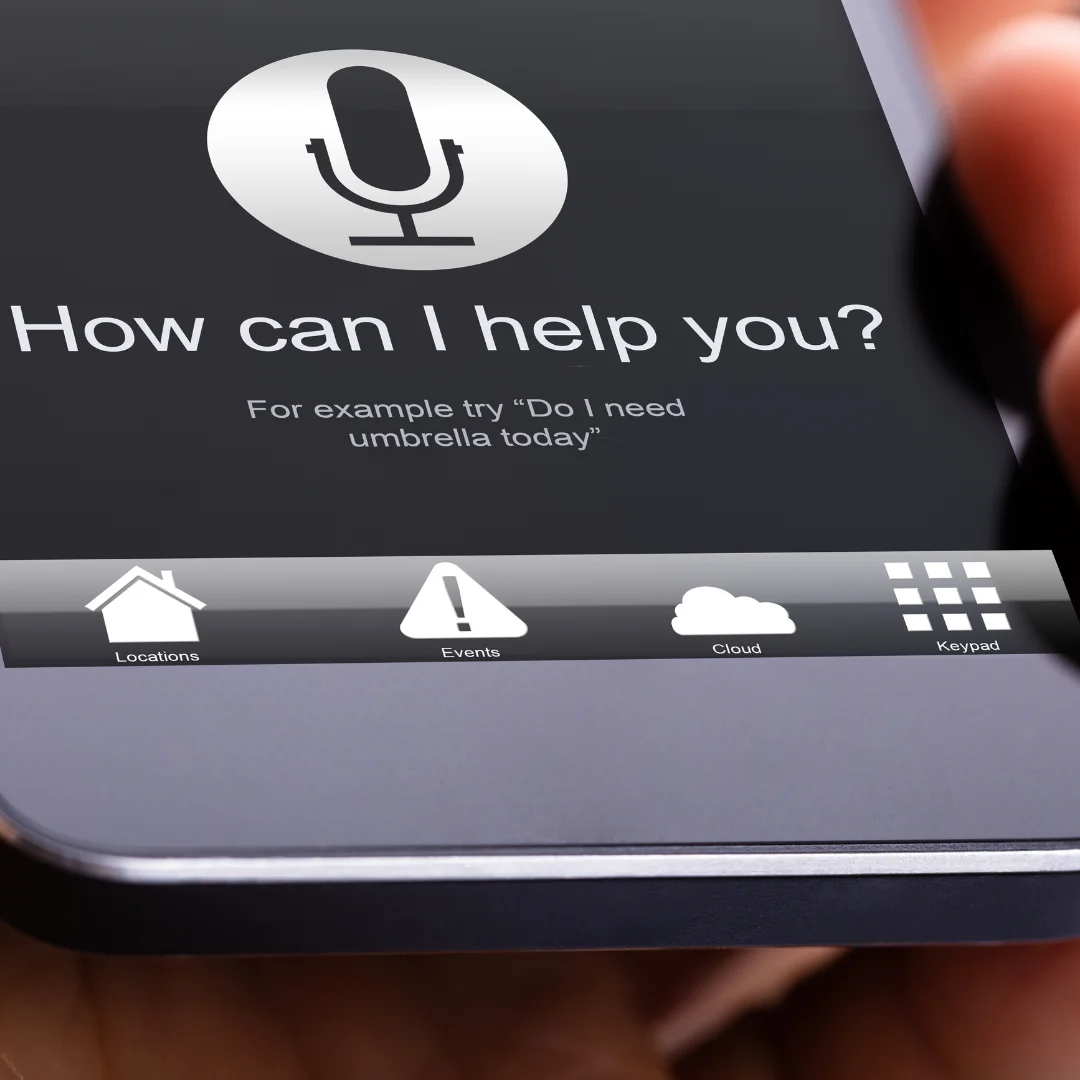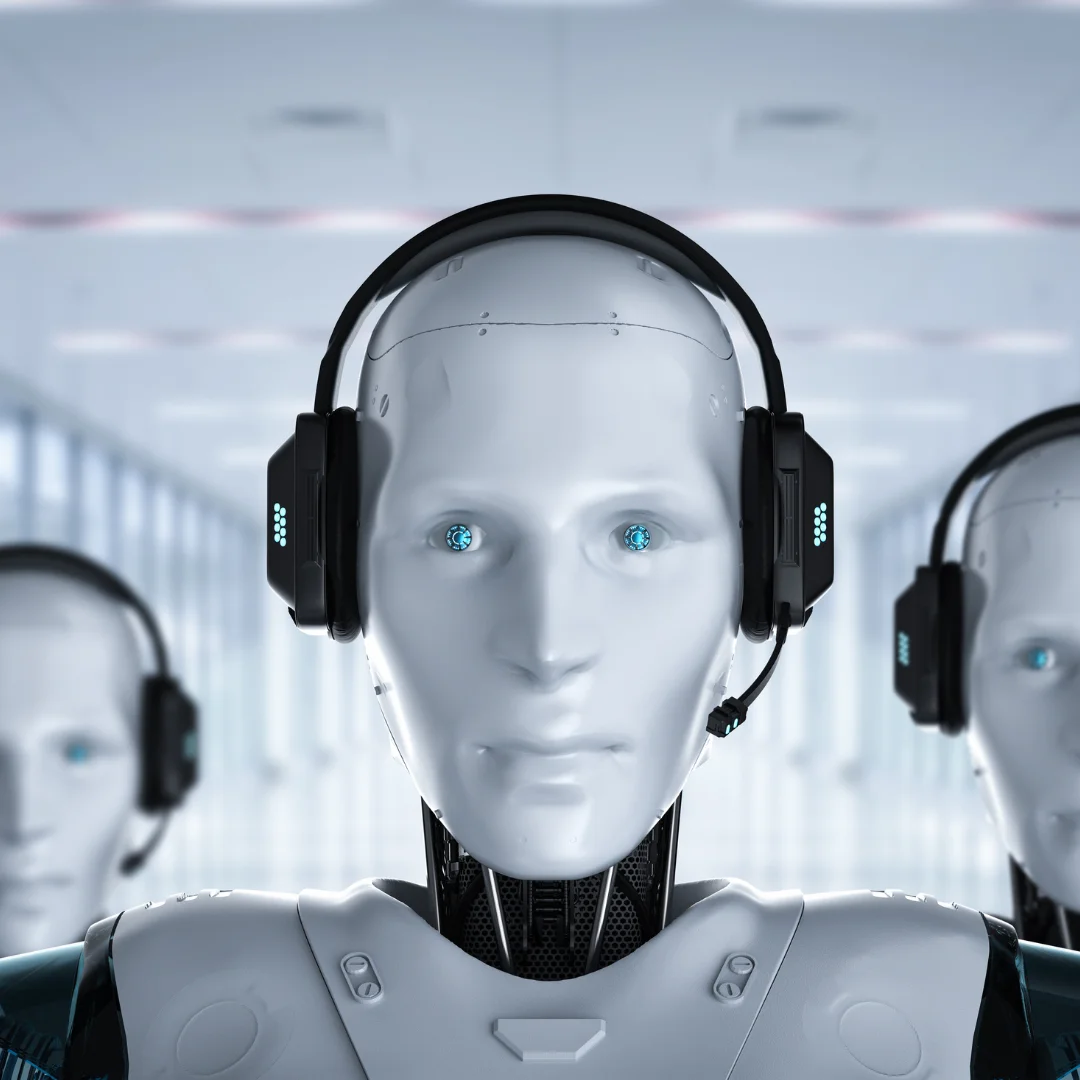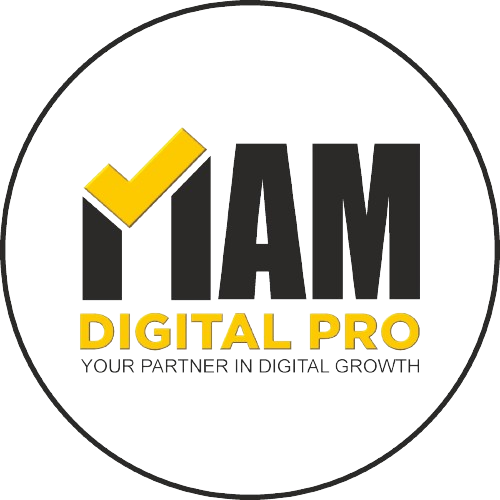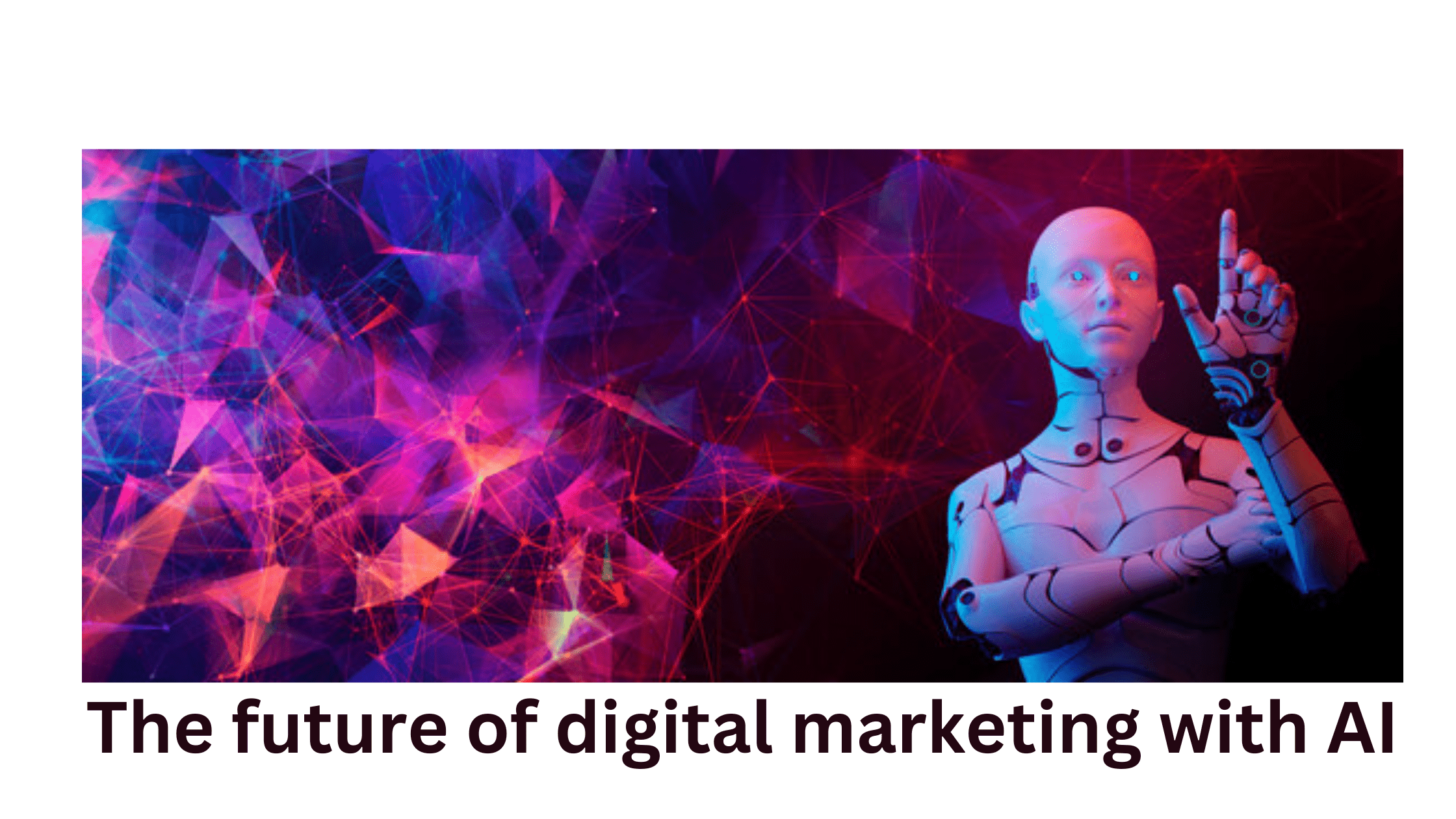Digital marketing has evolved rapidly over the past decade, with new technologies and techniques emerging almost daily. One of the most exciting developments in this field is the increasing use of artificial intelligence (AI) to improve the effectiveness of marketing campaigns. AI has already transformed many industries, and digital marketing will be no exception. In this blog post, we’ll explore the future of digital marketing with AI and how it will revolutionize the industry.
What is AI in Digital Marketing?
Before we dive into the future of digital marketing with AI, it’s essential to understand what AI is and how we can use it in digital marketing. AI is a broad term that refers to the development of machines that can perform tasks usually requiring human intelligence, such as learning, problem-solving, and decision-making. In digital marketing, AI analyzes large amounts of data, automates repetitive tasks, and personalizes content for individual users.

Digital Marketing and AI
One of the most common uses of AI in digital marketing is customer data analysis. By analyzing customer behavior and preferences, AI algorithms can identify patterns and insights that would be difficult for humans to spot. This information can then be used to create more targeted and effective marketing campaigns, improving the ROI of marketing efforts.
Another use of AI in digital marketing is automating repetitive tasks, such as email campaigns or scheduling social media posts. By automating these tasks, marketers can save time and focus on more strategic activities, such as developing new marketing strategies or analyzing campaign performance.
Finally, AI is used to personalize content for individual users, improving the relevance and effectiveness of marketing messages. By analyzing user behavior and preferences data, AI algorithms can create personalized content tailored to each user, increasing engagement and conversions.
The Future of Digital Marketing with AI
So, what does the future of digital marketing with AI look like? Here are some of the key trends and developments that we can expect to see in the coming years:
-
Hyper-Personalization
As mentioned earlier, one of the key benefits of AI in digital marketing is the ability to personalize content for individual users. However, in the future, we can expect to see even more advanced forms of personalization, known as hyper-personalization.
Hyper-personalization goes beyond simply tailoring content to individual users based on their behavior and preferences. It involves creating highly personalized experiences for each user based on various data points, including their location, device, and mood. For example, a hyper-personalized marketing campaign might change an ad’s language, tone, and imagery based on the user’s location, the time of day, and recent behavior on the site.
2. Voice Search Optimization
Voice search is rapidly becoming more popular, with millions of people using devices like Amazon Echo and Google Home to search for information and make purchases. As a result, marketers will need to adapt their strategies to optimize for voice search.

Digital Marketing Voice Search
AI can help by analyzing voice search data to identify the most common queries and patterns. Marketers can then use this information to create content optimized for voice searches, such as long-tail keywords and natural language phrases.
3. Augmented Reality
Augmented reality (AR) is another technology that is set to revolutionize digital marketing. AR allows users to interact with digital content in the real world, creating immersive and engaging experiences.

Digital Marketing Augmented Reality
AI can help with AR by analyzing user behavior and preferences to create personalized AR experiences. For example, a retailer could use AR to allow customers to try on clothes virtually, with AI algorithms analyzing their body shape and preferences to suggest the most suitable items.
4. Chatbots
Chatbots are becoming increasingly popular in customer service, allowing businesses to provide instant customer support at any time of the day. However, chatbots can help in digital marketing to engage with customers and provide personalized recommendations.

Digital Marketing Chatbots
AI algorithms can analyze customer data and create chatbots tailored to individual users. For example, a chatbot for a clothing retailer might ask users about their style preferences and previous purchases and then recommend new items based on this information.
5. Predictive Analytics
Predictive analytics is another area where AI will significantly impact digital marketing. Predictive analytics uses machine learning algorithms to analyze historical data and identify patterns and trends that can predict future behavior.

Digital Marketing predictive analytics
In digital marketing, predictive analytics can identify which customers are most likely to purchase, allowing marketers to target these users with personalized offers and incentives. It can also predict which marketing campaigns are likely to be most effective, allowing marketers to allocate their resources more effectively.
6. Dynamic Pricing
Dynamic pricing is a strategy that involves changing prices based on real-time market conditions, such as supply and demand. Many retailers already use this strategy, but AI is set to make it even more effective.

Digital Marketing Dynamic Price
AI algorithms can analyze market data in real time and adjust prices accordingly. This will help retailers maximize their profits by charging the highest fees when demand is high and lowering prices when demand is low.
7. Automated Content Creation
Finally, we can expect to see more automated content creation in the future of digital marketing. AI algorithms can analyze data and create content tailored to individual users, such as personalized product descriptions or social media posts.

Digital Marketing Content Generation
Automated Content Creation can help marketers save time and resources while also improving the relevance and effectiveness of their content. However, automatic content creation will likely partially replace human content creators. Instead, it will supplement and enhance human creativity, allowing marketers to create more personalized and engaging content at scale.
Conclusion
In conclusion, the future of digital marketing with AI is set to be exciting and transformative. AI will enable marketers to create more personalized, engaging, and effective campaigns while saving time and resources. However, it’s important to note that AI is not a silver bullet that will solve all digital marketing challenges. It’s still essential for marketers to understand their target audience and create campaigns that are tailored to their specific needs and preferences.
As AI evolves and advances, we expect to see even more innovative and impactful use cases in digital marketing. The key for marketers will be to stay up-to-date with the latest trends and developments in AI and to experiment with new strategies and techniques that leverage this powerful technology.
FAQs
1. What are the main ways AI is currently impacting digital marketing?
AI is revolutionizing digital marketing across various aspects:
- Personalized experiences: AI analyzes user data to personalize content, recommendations, and ads, creating more engaging experiences.
- Predictive analytics: AI predicts user behavior and purchase patterns, allowing businesses to optimize campaigns and predict future performance.
- Automated tasks: AI automates repetitive tasks like content creation, keyword research, and social media scheduling, freeing up human resources for strategic tasks.
- Chatbots and virtual assistants: AI-powered chatbots provide 24/7 customer support and answer frequently asked questions, improving customer service.
- Content generation: AI assists with creating content like product descriptions, blog posts, and even marketing copy, saving time and resources.
2. How will AI personalize marketing further in the future?
AI will move beyond basic demographics to analyze emotional responses, cultural preferences, and individual purchase triggers. This will enable:
- Hyper-personalized ads: Ads will be tailored to individual preferences and purchase history, creating a more relevant and engaging experience.
- Predictive targeting: AI will predict what products and services users are likely interested in, allowing for targeted marketing at the right time.
- Dynamic content: Websites and apps will adapt to individual users, presenting content that resonates with their needs and interests.
3. Will AI replace human marketers?
While AI will automate some tasks, it’s unlikely to replace human marketers completely. Instead, AI will augment human capabilities, allowing them to focus on strategic planning, creative thinking, and building relationships.
4. What are the ethical considerations involved in using AI for marketing?
AI raises ethical concerns related to privacy, data bias, and transparency. It’s crucial for businesses to:
- Be transparent about how AI is used: Communicate to users how their data is collected and used.
- Avoid biased algorithms: Ensure AI models are trained on unbiased data to avoid discriminatory outcomes.
- Respect user privacy: Comply with data privacy regulations and safeguard user information.
5. What skills will future digital marketers need to succeed?
Future marketers will need a blend of technical and soft skills, including:
- Data analysis and interpretation: Understanding how to analyze marketing data and translate it into actionable insights.
- Knowledge of AI technologies: Familiarity with various AI tools and how to use them effectively.
- Creativity and storytelling: The ability to craft compelling narratives that resonate with audiences.
- Critical thinking and problem-solving: Analyzing situations and finding creative solutions to marketing challenges.
- Adaptability and continuous learning: The ability to adapt to the dynamic nature of the digital landscape and embrace new technologies.
6. How can businesses prepare for the future of AI in digital marketing?
Businesses can prepare by:
- Investing in AI training and resources: Equip your team with the knowledge and skills to leverage AI effectively.
- Experimenting with AI tools and platforms: Start by implementing AI in specific areas like content creation or ad management.
- Building a data-driven culture: Encourage data collection and analysis to inform marketing strategies and decisions.
- Developing an ethical framework for AI use: Establish clear guidelines for data privacy, bias mitigation, and transparency.
7. What are AI’s potential challenges and risks in digital marketing?
Challenges include:
- Data privacy and security concerns: Ensuring user data is protected and used responsibly.
- Bias in AI algorithms: Mitigating bias and ensuring fair and equitable outcomes.
- Transparency and explainability: Making AI decisions understandable and transparent.
- Overreliance on automation: Balancing automation with human creativity and judgment.
8. What are some real-world examples of how businesses are using AI in digital marketing today?
- Netflix: Uses AI to personalize movie recommendations for individual users.
- Amazon: Leverages AI for targeted product recommendations and dynamic pricing.
- Spotify: Creates personalized playlists based on user listening history and preferences.
- Sephora: Offers virtual try-on experiences for makeup products using AI technology.
- Nike: Uses AI to personalize product recommendations and offer customized running plans.
9. How can small businesses leverage AI in their marketing strategies?
Various AI tools and platforms are affordable and accessible to small businesses, allowing them to:
- Create personalized content and offers: Generate targeted marketing messages and promotions.
- Automate repetitive tasks: Free up time for strategic planning and customer engagement.
- Gain insights into customer behavior: Analyze data to understand what resonates with their audience.
- Improve social media marketing: Schedule posts, manage engagement, and monitor social media conversations.
10. Where can small businesses learn more about using AI for marketing?
Here are some resources to help small businesses learn more about using AI for marketing:
Online resources:
- HubSpot Academy: Offers free courses and certifications on various marketing topics, including AI marketing.
- Google AI for Business: Provides information and resources on how businesses can leverage AI across various functions, including marketing.
- Small Business Administration (SBA): Offers resources and guidance for small businesses, including information on emerging technologies like AI.
- AI Marketing Institute: Provides educational resources and insights on the latest AI trends and applications in marketing.
Blogs and publications:
- Marketing AI Institute Blog: Features articles and insights from leading experts in AI marketing.
- MarTech Today: Provides news and insights on the latest marketing technologies, including AI.
- VentureBeat: Covers AI and technology trends with a focus on business applications.
Events and conferences:
- AI Marketing Summit: A major annual event focusing on the latest trends and technologies in AI marketing.
- SXSW Interactive: Features sessions and workshops on emerging technologies, including AI and its impact on various industries.
- Digital Marketing World Forum: Offers a platform for networking and learning about the latest digital marketing trends, including AI.
Professional organizations:
- American Marketing Association (AMA): Offers resources and events on various marketing topics, including AI marketing.
- Digital Marketing Institute (DMI): Provides courses and certifications on digital marketing, including AI marketing-specific programs.
Additional resources:
- Books: “AI for Marketing: How Artificial Intelligence is Transforming the Future of Customer Engagement” by Christopher Penn and Michael Osborne, “Marketing Artificial Intelligence: How to Use AI and Marketing Automation to Grow Your Business” by Paul Roetzer.

